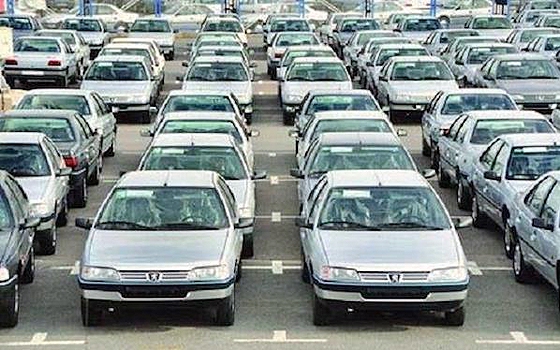For more than 30 years, Iran was an important market for France's PSA Group, parent company of the Peugeot and Citroën marques. Iran's second- largest carmaker, Saipa Group, was established in 1966 with the sole purpose of building Citroën vehicles. Peugeot, meanwhile, had a long- standing relationship with Iran Khodro, the country's biggest automaker. By 2012 the success of these deals had turned Iran into PSA's second-biggest market after France.
Yet in 2013 the French company was forced out of Iran when trade sanctions were imposed and its own financial woes compounded matters. Little wonder that when trade sanctions were lifted in January 2016, the French carmaker became one of the first Western companies to announce its return to the Middle Eastern country.
Under a joint venture agreement announced in January and signed in June 2016, PSA Group and Iran Khodro are investing €400m (about US$440m) over 2016-21 in a 50-50 venture to produce and launch the Peugeot 208, 301 and 2008 models. The first locally made cars are scheduled to roll off the production line at a plant in Tehran in the second half of 2017. Not to be outdone, Citroen is also heading back to Iran. In July 2016, PSA Group renewed its agreement with Saipa Group to sell Citroën vehicles there from 2018.
The deal therefore marks PSA Group's re-entry into Iran after a three-year hiatus. With the new agreement, PSA Group is aiming to revive its position as the market leader in the largest automotive industry in the Middle East. In 2011 PSA Group sold over 450,000 vehicles in Iran and there are still around 4m Peugeot cars on the road there. In 2017 PSA Group hopes to sell 300,000 vehicles in the country, while The Economist Intelligence Unit expects the total car market to expand by 12%.
Yet this time round PSA Group may find the competition tougher. Iran Khodro and Saipa also have manufacturing deals with other carmakers, notably Industrial Development and Renovation Organisation (IDRO), the local joint venture of PSA's French rival Renault. IDRO and Renault signed a new deal in September 2016 under which they plan to build a new plant. In addition, Saipa builds vehicles licensed from South Korea's Kia Motor, and Khodro builds models from Japan's Suzuki. Germany's Volkswagen is also mulling a venture with an Iranian automotive company.
Moreover, the years of isolation have hardened the Iranian carmakers' own ambitions. Crucially, the joint-venture agreement with PSA allows Iran Khodro to develop its own cars on the same PSA platforms. The Iranian automaker plans to raise its annual production to 600,000 through the venture. The new plant is also expected to use locally developed parts to manufacture the vehicles, as opposed to importing them from France and South Korea as before.
EIU
29 December























































